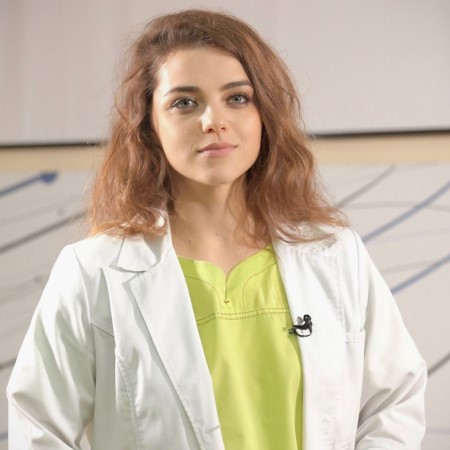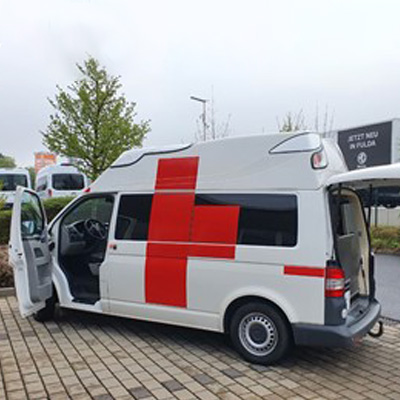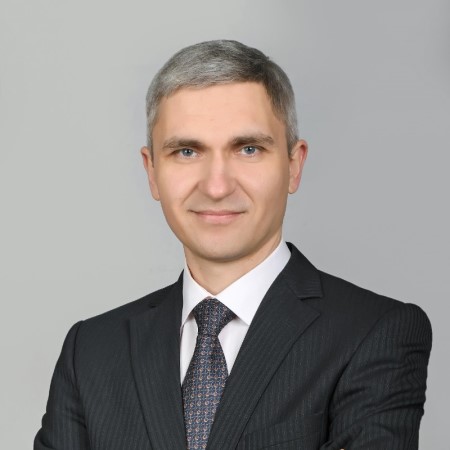Ukraine’s Plea To Industry: Restart Clinical Trials And Give Us New ‘Weapons’ To Fight Cancer
While Existing Studies Continue, New Trials Have Dried Up
Executive Summary
More than one year into the conflict, pharma employees in Ukraine have made heroic efforts to maintain existing clinical studies – but what the country’s doctors and CROs really want is for international companies to start opening new trials again.
More than one year on from Russia’s invasion, Ukraine is bloodied but unbowed – but its once-flourishing clinical trials environment has all but ground to a halt.
While fierce fighting between Ukraine’s army and Russian forces continues in the south and east of the nation, the rest of the country is trying to carry on as normally as possible, but sporadic rocket and drone attacks terrorize the capital, Kyiv, and other cities behind the frontlines. And one of the many results of the continued conflict is that virtually no new pharma-sponsored clinical studies are being opened in Ukraine, depriving patients with no further treatment options of access to investigational medicines.
Data from Trialtrove (part of Scrip’s parent company Citeline) confirm a steep decline in the number of new international studies being launched in the country – down from 239 in 2021 to 86 last year – with just seven planned to open this year.
Despite the many challenges, doctors and clinical research organizations are adapting to the new conditions and are calling for industry to make the changes necessary to allow their studies to return to the country. At present, however, many pharma firms judge the situation still too dangerous.
Veronika Patsko, a clinical oncologist at the National Cancer Institute in Kyiv, said that before the war, most of her time was spend overseeing pharma-sponsored clinical studies, but that no new trials have opened in her clinic since the war started. “It is really depressing. As an oncologist, I now need to tell these people that [once they progress on existing medicines] we have no further treatment options for them,” she said.
Neighboring Poland has seen an increase in clinical trial activity since the war and could, in theory, admit Ukrainians to its studies, but making the 800km journey from Kyiv or from other regions is not an option for most patients, especially during a war.
Just as the Ukranian government is calling on allies to provide it with military supplies, Patsko made the same plea in relation to clinical trials. “There is a war on, but we are fighting another kind of war with the patients against cancer. But suddenly now we have no additional weapons.”
Supply Chains Restored
Clinical research leaders from pharma and contract research organizations are proud of the often-heroic efforts that their Ukraine employees have made to sustain ongoing clinical trials, especially during the first few months of the conflict which began in February 2022.
Investigators, CROs and pharma companies proved remarkably successful in keeping patients already on clinical studies – even when participants had to evacuate to another part of Ukraine or abroad, very little patient trial data was lost because of the war.
Now, supply chains, including the timely flow of investigational medicinal product and biosamples, have been successfully switched from air to land, back-up generators allow hospitals to maintain power when electricity supply fail, and satellite services such SpaceX’s Starlink help to ensure reliable Wi-Fi coverage.
Even so, the instability and uncertainties caused by the war are seen as still too great by most companies – not just the physical dangers but also the threat to trial data of Russian cyberattacks.
“Sponsors are very supportive of Ukraine trials, but the country is just too much of a risk,” explained Vlad Bogin, CEO of contract research organization Cromos Pharma. “In multi-year trials, if you have so many unknowns, it's hard for sponsors to commence. Because data is key and if you cannot get the data on time, in a structured manner, that becomes unworkable.”
Cromos’s business had formerly drawn heavily on Ukraine and Russia as its favored locations for research, but Bogin said both have effectively been de-listed as trial locations (Russia’s exclusion is based on international sanctions rather than the war itself).
Ivan Vyshnyvetskyy, managing director of the independent site management organization FutureMeds Ukraine and also president of the Ukrainian Association for Clinical Research, estimated that before the war, the annual Ukraine clinical trials market was worth at least $500m annually – a hugely valuable sector for the country whose medical professionals and standards of clinical trial conduct were highly regarded.
The good news is that the majority of studies that had started and fully recruited patients in Ukraine before the war are still ongoing – but a clear attrition is also evident, as some patients exit studies and trials are completed. Trialtrove data shows that there were 2,120 studies ongoing in 2021, but this fell by around 16% last year to 1,792. At present, 1,418 studies are ongoing, representing a further 21% decline. Meanwhile, trials recruiting when war broke out were put on hold and have not resumed recruitment.
Vyshnyvetskyy said pharma sponsors frequently cited their standard operating procedures (SOPs) which rule out studies being conducted when there is a safety or security risk, as a reason to stay out but he believes passionately that the industry can find a way to update these SOPs to help Ukraine and Ukraine’s patients.
“Every day patients and doctors are coming to hospitals for medical care, so participating in clinical trials does not create additional risks for them. It’s the same for clinical research associates and monitors, because they live in these cities anyway.”
Addressing the international industry directly, he said: “Can you contribute to that support that every decent human on the earth right now provides to the Ukraine? You can consider changing your SOPs on where you can or cannot conduct clinical trials. Because participating in research gives a lot of benefits and no additional risks,” he argued.
A Trickle Of New Trials
The outlook is not entirely bleak, however, as Vyshnyvetskyy is able to report a few smaller companies have recently signed up to start new studies. These include Poland-headquartered Celon Pharma, which will initiate a study in Parkinson’s dyskinesia, and is also understood to be considering trials in psychiatry and oncology.
Another new FutureMeds Ukraine client is the small French biotech AB Science, which is due to commence an asthma study later this year.
Vyshnyvetskyy said that the big pharma companies have a herd mentality, and constantly enquire about what their competitors’ plans are in the region. He hopes that a decision by one could persuade others to return as well.
“The big pharma companies tell me their bosses in head office really want to re-start the Ukraine, but there are policies blocking that. But, if in the bigger cities in central and western Ukraine, there are no drone or missile strikes for at least two months, I hope we can start reopening screening in studies that were put on hold, or even discuss allocating new studies.”
MSD’s Pledge To Ukraine Staff And Patients
One big pharma company with a major presence in Ukraine is MSD (as Merck & Co. is known outside North America), having established itself as a top-five sponsor of trials in the country before the war.
Andy Lee, MSD’s head of global trial operations, who oversees trials involving around 70,000 patients with offices in 50 countries, including Ukraine, paid tribute to the company’s Ukraine staff and said MSD would continue to support its team there despite most of its trials being suspended.
“Deep in our hearts, we believe that business continuity in Ukraine is good for morale,” he said. “It's good for patients, and for the scientific ecosystem. We will not abandon the people who have served us so well for so long, they have been tremendous researchers and tremendous staff.” He added that MSD's philosophy worldwide was, “No colleague, no partner should be left behind, no patient, no data left behind.”
Nevertheless, sponsors need to ensure that once enrolled, a patient will be able to receive the investigational medicines and medical care required in a study, and at the same time minimize the chance of patient data being compromised and ineligible for inclusion.
Success With Two Short Studies
Lee is proud to be able to report that MSD has been able to open new studies in Ukraine, including a pediatric infectious disease study and a trial of its COVID-19 therapy molnupiravir.
Both of these were feasible because of their short duration – the molnupiravir trial involved a five- or ten-day treatment course and a follow-up period of four weeks. This particular trial was difficult to recruit in many other countries because it required participants not to have been vaccinated against COVID-19.
“We enrolled around 60 patients [in Ukraine] and that really contributed to the global study. I can tell you we recruited no patients in the UK or anywhere in Western Europe, because the circumstances didn't allow those to be recruited. So those were extremely valuable for the global trial and a wonderful success.”
Cancer Studies Halted
Nevertheless, more complex and longer studies, such as oncology trials are far more risky, and any deviation from the exact drug supplies as defined in a protocol, or loss of patient data could jeopardize a trial’s integrity.
That means MSD has suspended its long-term oncology studies in Ukraine. “We just don't feel that's appropriate now,” said Lee. “A major challenge is that most cancer studies involve comparing different multi-drug combinations, which requires a lot of background therapy included standard of care,” he noted, adding that this was not feasible given shortages of medicines the country is still experiencing.
One example of a trial suspended in Ukraine (and Russia) is MSD’s open-label Phase III study LEAP-014 involving Keytruda (pembrolizumab) and Eisai’s Lenvima (lenvatinib) in patients with metastatic esophageal carcinoma. The study, which includes overall survival among its primary endpoints, was launched in 20 countries worldwide in 2021, including seven sites in Russia and eight in Ukraine, and is due to reach primary completion in 2025.
On oncology trials, Lee pledges: “We've had an appeal from a prominent cancer center in Ukraine to come back and do work there. We take that very seriously, and we’ll get back as soon as we can.”
Business Continuity
MSD’s clinical research director in Ukraine, Serhiy said he and his colleagues had been on a war footing since 2014, when Russia annexed Crimea. The team has become used to crisis management: a cyberattack on its servers in 2016/2017 was followed by the COVID-19 pandemic when it had to rapidly adapt in order to keep studies going.
Although the team had been scenario-planning for an escalation in hostilities since 2014, including making plans to stockpiles medicines in regional locations to maintain supplies, he said nothing could have prepared them for the onslaught of the initial invasion. “Basically, on 24 February last year, it was completely another world in which we woke up in the morning. And what was happening was the worst-case scenario in our planning.”
At the time of the invasion, around 30 of MSD’s clinical trial associates were travelling around Ukraine on site visits, so the company’s first efforts were to ensure their safety, and and then look to re-establish contact with investigators across the country.
Crowd-Sourcing Humanitarian Help
While there are limits to what Serhiy and his team can do in clinical trials, they are taking the initiative to help people caught in the war’s crossfire however they can.
A number of MSD’s own employees have been conscripted into the Ukrainian army, including one medically trained colleague who now serves as a doctor near the frontline. The team asked them how they could help, and their colleagues requested an ambulance to help transport wounded soldiers and civilians away from the frontline and into hospitals.
“So we set up a fund, collected money and bought a used ambulance car in Germany, repaired and repainted it and supplied it to the frontline,” said Serhiy. The company has also worked with the $1K Project Ukraine charity (1kproject.org), set up by a Ukrainian married to an MSD research scientist, which sends money directly to Ukrainian families.
“Everyone in Ukraine knows we can’t just rely on the government, we all have to help out,” added Serhiy.
One of the worst affected cities was Kharkiv, close to the Russia border in northeast Ukraine. The country’s second largest city, it had a pre-war population of 1.4 million and was a major center for oncology research, with MSD alone having 20-30 on cancer clinical studies ongoing when Russia launched a massive rocket bombardment in February 2022. While a Ukranian forces counteroffensive helped win the city back, it remains on the frontlines of the conflict, with Russia continuing to shell civilian and critical infrastructure targets.
Having re-establishing their links with research centers to maintain existing trials wherever possible, Serhiy and his team completely reorganized the importation and distribution of clinical trials supplies into Ukraine, switching from air transport to new direct-to-site land-based suppliers, which resulted in MSD becoming one of the first companies to re-connect their supply chain. MSD also helped around 150 trial participants to stay on studies after fleeing the conflict, either into western Ukraine or abroad.
Its rapid response has been mirrored in other companies with active clinical trials in Ukraine. These include Merck KGaA with its Phase III EVOLUTION RMS clinical trial program of evobrutinib in relapsing multiple sclerosis – the US Food and Drug Administration has allowed the company to update the trial protocol to extend its timeframe and switch to an event-driven endpoint to help maintain the trial’s integrity and avoid a delay to the readout. (Also see "Merck KGaA Overcomes Ukraine Disruption To Keep MS Frontrunner On Track" - Scrip, 6 Oct, 2022.)
Clinical Trials Also Offer Economic Assistance
Despite the difficulties brought by the current conflict, CROs there are confident that there is a future for clinical research in the country and are also making a direct plea to the industry to return.
Vyshnyvetskyy said that launching new studies would help Ukraine’s devastated economy. “We had a multi-million dollar industry, but now it is close to zero. We are not asking for charity, we’re asking for work,” he said. “We can provide quality data and help our patients, and our government will ask less money from your government. So why not do it?”
Bogin said Cromos was supporting Ukraine by maintaining its team in the country, even though their work has dried up, with the hope that the war’s end will come soon. “That's why we are keeping our team in place, not just for humanitarian reasons, but because when this nightmare is over, we want to be able to hit the ground running.”
Patsko, meanwhile, acknowledged that pharma is a business and that losing trial data is a risk, but wants new studies to start again as soon as possible. “Companies could spend thousands of euros to treat a patient, and then they could die just moving between cities in Ukraine. So of course [there is that added risk] and not just from the disease or adverse events. I understand that, but I'm a doctor and I want my patients to get the best treatment.”
At present, Patsko has just one patient receiving investigational drug through a compassionate-use setting. “My main message is that apart from the general safety question – which is down to Russia, not us – we can operate exactly as we did before the war. In fact, even better, because now we know how to deal with really difficult situations.”



